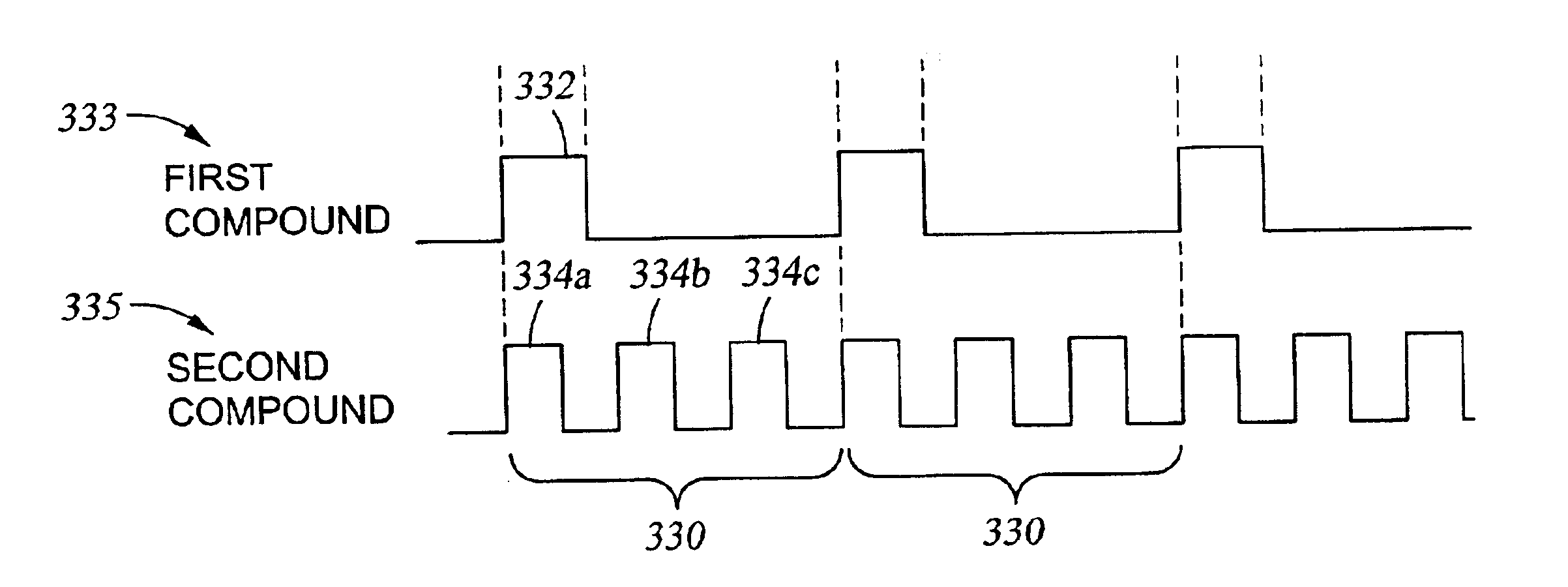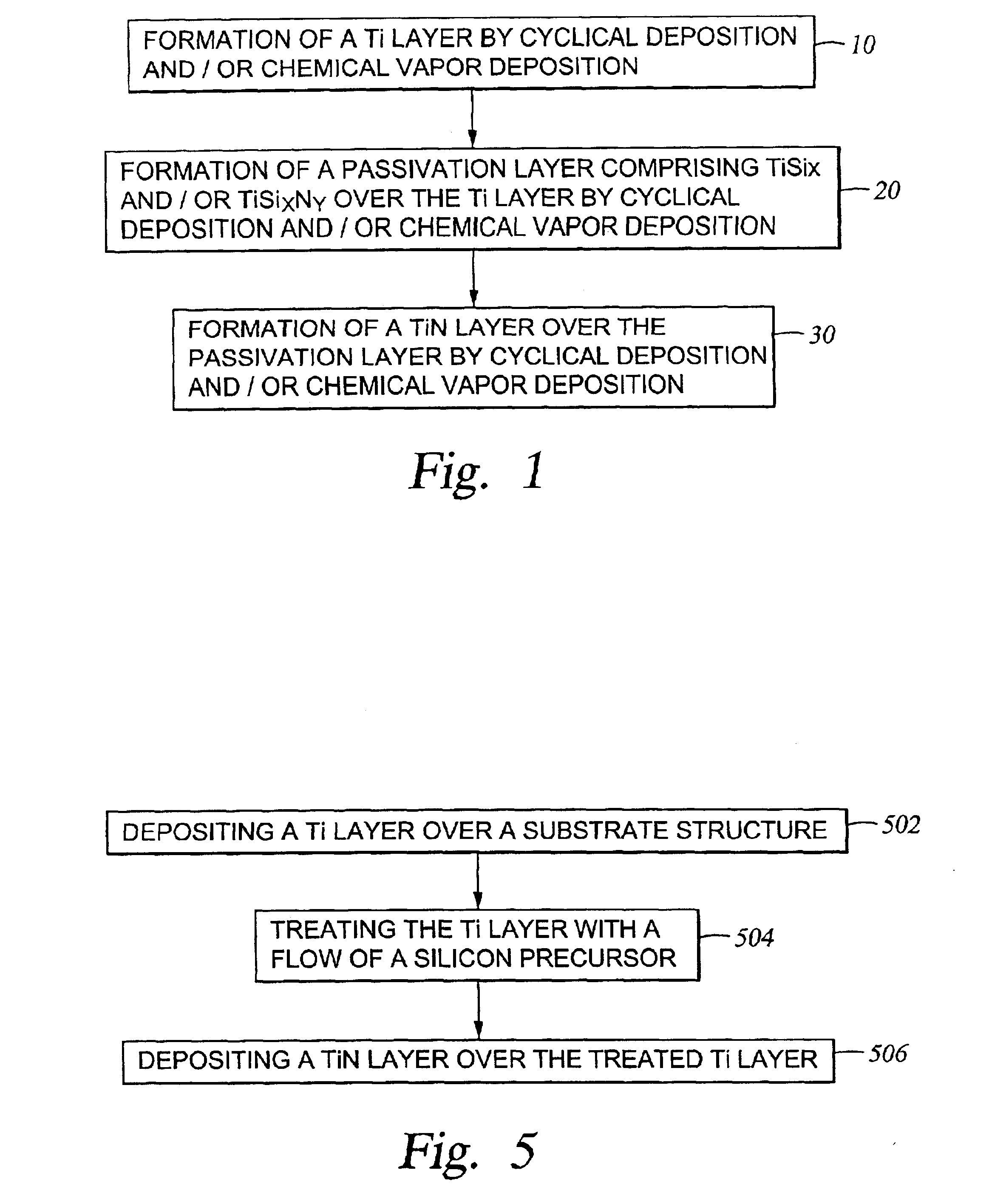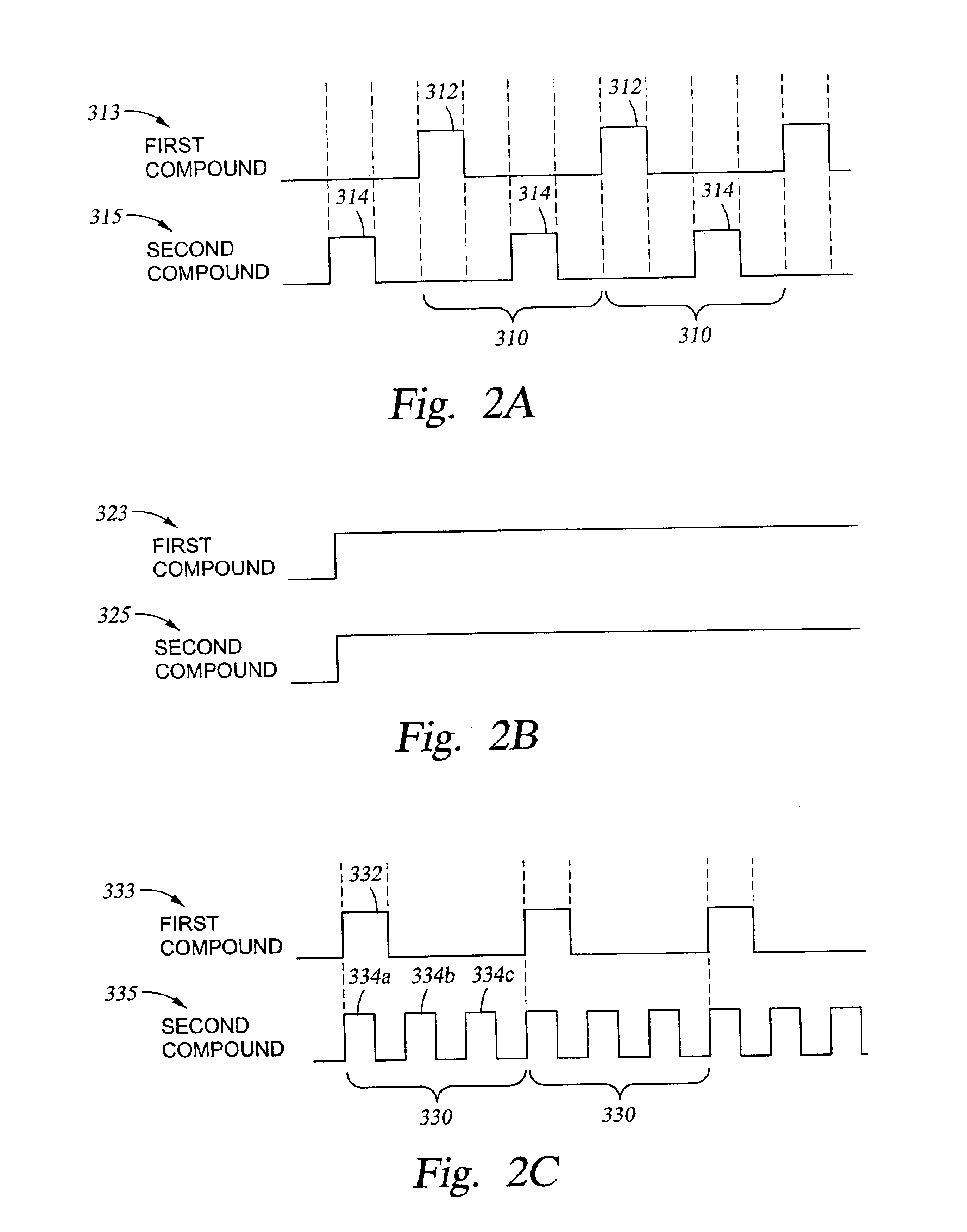Integration of titanium and titanium nitride layers
a technology of titanium nitride and titanium nitride, which is applied in the direction of coatings, chemical vapor deposition coatings, electric discharge tubes, etc., can solve the problems of large amount of ongoing effort, reliability problems, and many traditional deposition processes that have difficulty in filling sub-micron structures
- Summary
- Abstract
- Description
- Claims
- Application Information
AI Technical Summary
Benefits of technology
Problems solved by technology
Method used
Image
Examples
Embodiment Construction
Formation of a TiSix and / or a TiSixNy Film
[0024]FIG. 1 is a flow chart illustrating one embodiment of a process of integrating a titanium (Ti) layer and a titanium nitride (TiN) layer by forming a titanium silicide (TiSix) layer and / or a titanium silicon nitride (TiSixNy) layer between the Ti layer and the TiN layer. In step 10, a Ti layer may be formed over a substrate structure by cyclical deposition, chemical vapor deposition, or a combined mode of cyclical deposition and chemical vapor deposition. In step 20, a passivation layer comprising titanium silicide and / or titanium silicon nitride may be formed over the Ti layer by cyclical deposition, chemical vapor deposition, or a combined mode of cyclical deposition and chemical vapor deposition. In step 30, a TiN layer may be formed over the passivation layer by cyclical deposition, chemical vapor deposition, or a combined mode of cyclical deposition and chemical vapor deposition.
[0025]Not wishing to be bound by theory, it is believ...
PUM
| Property | Measurement | Unit |
|---|---|---|
| Temperature | aaaaa | aaaaa |
| Flow rate | aaaaa | aaaaa |
Abstract
Description
Claims
Application Information
 Login to View More
Login to View More - R&D
- Intellectual Property
- Life Sciences
- Materials
- Tech Scout
- Unparalleled Data Quality
- Higher Quality Content
- 60% Fewer Hallucinations
Browse by: Latest US Patents, China's latest patents, Technical Efficacy Thesaurus, Application Domain, Technology Topic, Popular Technical Reports.
© 2025 PatSnap. All rights reserved.Legal|Privacy policy|Modern Slavery Act Transparency Statement|Sitemap|About US| Contact US: help@patsnap.com



